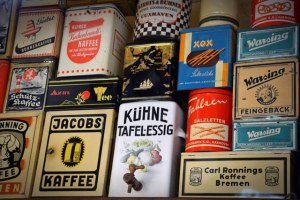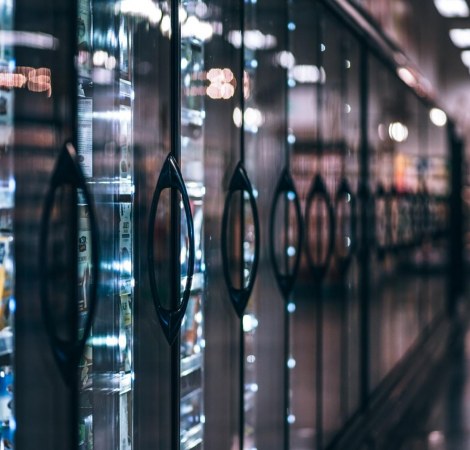- Food and Beverages Registration in Vietnam: The Requirements
- Labeling of Food and Beverages in Vietnam
- Application Dossier for Food and Beverages Product Registration
- Safety and Hygiene of Food and Beverage Products in Vietnam
- Consult with Cekindo Regarding Food Safety in Food & Beverages Registration in Vietnam
The food and beverage sector is one of the most important and profitable markets in Vietnam, with high revenue driven by both local and foreigners. This sector also accounts for the significant growth of the country’s GDP.
According to BMI’s Vietnam Food and Drink report, it is forecast that from 2017 to 2021, the total food sales will be increasing at a compound annual average rate of 11.3%. Rice, bread, and cereals will contribute to more than 40% of those sales.
Find Out About Cekindo’s F&B Registration Services in Vietnam
Vietnam is one of the most alluring markets in Southeast Asia for consumer-oriented business. Contributing factors include growing middle class, positive demographic dynamics, increasing income and sustainable economic growth. The consumers’ spending power has increased over the past few years.
By 2020, 60% of the Vietnamese population will be 30 years old and approximately 6.1 million households will have an income level of US$5000 – US$10,000.
In addition, the food retail sector in Vietnam is developing at a very fast pace. There are about 9,000 traditional markets, 800 supermarkets, 150 shopping centers, and 2.2 million mom and pop stores in the country.
As for foreign food retailers and super stores, many are showing interest in investing in this lucrative sector with the aim of transforming the traditional retailers to modern ones. More than 50% of the Vietnamese beverage market is currently owned by foreign businesses. It is unquestionable that the growth of modern retailers will present even more opportunities in the food and beverage sector in Vietnam.
To tap into this potential food sector, entrepreneurs need to comply with the country’s company formation procedure. They also have to understand the Vietnamese food and beverage registration and relevant regulations.
RELATED: How to Start a Restaurant Business in Vietnam
This article elaborates the food and beverages registration in Vietnam.
Food and Beverages Registration in Vietnam: The Requirements

Depending on their categories, food and beverages are controlled and regulated by three separate ministries in Vietnam.
They are the Ministry of Industry and Trade (MOIT), Ministry of Health (MOH), and Ministry of Agriculture and Rural Development (MARD). The MOH possesses the main management power for decisions.
Regardless of categories, all foreign processed foods must go through product registration with the agency of MOH: Vietnam Food Administration (VFA).
Through this product registration, business owners will get a Certificate of Conformity Declaration (CCD). Then, they can import their food and beverages to the Vietnamese market for sales and distribution.
Latest Updates from VFA
On February 2, 2018, the VFA made an announcement that the new regulation Decree 15/2018/ND-CP would replace the previous regulation. This replacement came into effect immediately after the announcement. The VFA is in charge to set out food safety inspection responsibility and food safety audit for all agencies involved.
The new regulation outlines certain issues. They include advertising and labeling of food and beverage products, specialised products registration such as children’s and GMO products, packaged food self-declaration procedures, food safety certificate, and food manufacturing and trading requirements.
Transparency of Food and Beverage Regulations in Vietnam
The food and beverage regulations are progressing towards more transparency. The updates of regulatory requirements aim to facilitate the product safety and market launch of products.
In the future, they will encourage online submission for registration (now hard-copy documents are still required). This will save time and money for all parties involved.
The food safety and quality is definitely a growing concern for both regulators and consumers. The more stringent requirements for certain products, such as baby food and health food, have boosted the demand for high-reputable brands.
It has also urged the local agencies to increase the inspection frequency from the very beginning of food manufacturing process to the end of product distribution.
Labeling of Food and Beverages in Vietnam

According to Decree 43/2017/ND-CP, labels on food and beverages products are defined as “inscriptions, prints, drawings, images, or signs that are imprinted or embossed directly on or affixed, stuck, or pinned firmly to goods or their packaging to display necessary and principal information about such goods”.
This decree states that except for unpacked raw and fresh foods, all imported, exported and domestically circulated food and beverages products sold directly to consumers must bear labels. Information on the label shall include both compulsory and non-compulsory information.
One common mistake made by food and beverages importers and manufacturers is the product labeling. Manufacturers or importers violate the food law by submitting information that is different from the information submitted to the VFA of MOH. Or, they usually forget to inform VFA about the change of information on their labels.
This causes information discrepancy. The sanctions for the non-compliance in labeling can be quite severe. It can result in hefty fine. Worse, the mislabeled product will be withdrawn from the market.
Application Dossier for Food and Beverages Product Registration
In Vietnam, manufacturers and importers of food and beverages must still submit original documents, despite the existence of the online submission system.
The application dossier for food and beverages registration should consist of the following documents:
- Certificate of Free Sale or Health Certificate
- Certificate of Analysis (including microbial, chemical, heavy metal analysis)
- Certificate of HACCP (Hazard Analysis and Critical Control Points)
- ISO 22000 certificate
- Certificate of Good Manufacturing Practice (GMP)
- Importer’s business registration certificate including Enterprise Registration Certificate (ERC) and Investment
- Registration Certificate (IRC)
- Product label
- Product samples
The registration process usually takes 3 to 4 weeks to complete upon the application dossier submission. Once approved, the MOH will issue the food product certificate.
Safety and Hygiene of Food and Beverage Products in Vietnam
All companies and importers who want to manufacture and import food and beverages in Vietnam must fulfill conditions on food safety and hygiene to license and sell the food products.
Food and beverages producers with their products distribution in the market must self-announce the food safety quality and fulfill the MOH standards in Vietnam.
In other words, these producers and importers are liable for any food safety issues of their products. Food and beverages circulating in the market of Vietnam are subject to periodic quality testing as well.
Businesses of food and beverage products must obtain the Certificate on Satisfaction of Standards on food hygiene and safety. They are responsible to maintain and improve all standards concerning health, safety and hygiene. This is applicable for as long as their food and beverage businesses are valid.
The safety and hygiene standards apply to many things. They include processors, equipment, importers, workshops or stores, production premises, storage and warehouse, sales and distribution premises.
Other than that, all employees and personnel involved in the production, import and sales of food and beverages, who will or might have direct contact with the food and beverages, must go for health check-up periodically. This is to ensure their health conditions meet the criteria from the MOH. Trainings for food safety and hygiene, as well as food handling are also mandatory for owner and employees.
Consult with Cekindo Regarding Food Safety in Food & Beverages Registration in Vietnam
Talk to us now to know more about food safety, food and beverages registration process and food and beverages sector in Vietnam.
Our consultants are also available to assist you with products registration and take care of the paperwork and application on your behalf.
There is no better time to join the lucrative market than now. Fill in the form below.
